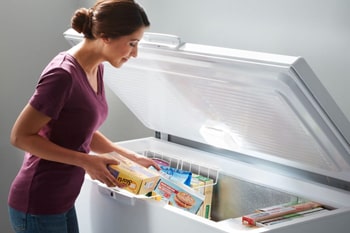How to Choose the Right AC Capacity for Your Room
The selection of the right air conditioner (AC) capacity is extremely important to cool powerfully, save alive electricity, and last long. To a great extent, most of these people commit the mistake, either by wrong estimation or overestimation of requirements; finally leading to the unimpressive results of effective cooling and the power bill rise. In the following article, we are going to help you comprehend the perfect AC capacity for your room.
Understanding AC Capacity
What is AC Capacity?
AC capacity is the capacity of an air conditioner to cool a given space. It is most commonly expressed in tons or British Thermal Units (BTUs). One ton of AC capacity is equal to 12,000 BTUs per hour. The higher the BTU rating, the greater the cooling capacity of an AC.
Why is AC Capacity Important?
Choosing the correct AC capacity ensures:
Proper cooling without overloading the unit
Lower energy consumption and electricity bills
Longer lifespan of the AC unit
How to Calculate Room Size for AC
To determine the ideal AC capacity for your space:
Measure the length and width of your room (in feet).
Multiply the two numbers to get the total square footage.
Use the following tonnage guide:
Up to 150 sq. ft. → 1 Ton
150 - 250 sq. ft. → 1.5 Ton
250 - 400 sq. ft. → 2 Ton
Factors Affecting AC Capacity Selection
Room Size and Shape
The bigger the room, the greater the cooling capacity you require. Also, rooms with odd shapes might need special attention.
Number of Occupants
More individuals in the room mean more body heat, which adds to cooling demands.
Sunlight Exposure
The rooms with direct sunlight exposure warm quicker, and more AC capacity is needed.
Ceiling Height
The rooms with higher ceilings need more cooling capacity since cold air will settle lower.
Electronic Appliances
Electricity-guzzling appliances such as computers and television sets augment the cooling burden.
How Many Ton AC Do I Need?
1 Ton AC: Best for small rooms (up to 150 sq. ft.), such as bedrooms or small offices.
1.5 Ton AC: Suitable for medium-sized rooms (150 - 250 sq. ft.), like living rooms or shared office spaces.
2 Ton AC: Ideal for large rooms (250 - 400 sq. ft.), such as large halls or commercial spaces.
Types of ACs and Their Efficiency
Window AC vs. Split AC
Window AC: Best for smaller rooms, easy installation, and lower cost.
Split AC: More energy-efficient, quieter operation, and better cooling for larger spaces.
Inverter vs. Non-inverter ACs
Inverter AC: Adjusts compressor speed, saving energy and maintaining consistent cooling.
Non-inverter AC: Runs at a fixed speed, consuming more electricity.
Energy Efficiency Ratings
Check the Energy Efficiency Ratio (EER) and Seasonal Energy Efficiency Ratio (SEER) to select an AC that offers better efficiency and lower power consumption.
Choosing the Right AC for Different Room Types
Bedroom: 1 - 1.5 Ton, quieter operation preferred.
Living Room: 1.5 - 2 Ton, depends on room size and heat load.
Office Spaces: 1.5 - 2 Ton, efficient cooling needed for productivity.
Commercial Areas: 2 Ton or more, depending on room size and occupancy.
Common Mistakes to Avoid When Choosing AC Capacity
Buying an Oversized or Undersized AC
Oversized ACs cool quickly but don’t remove humidity, making the room feel damp.
Undersized ACs struggle to cool efficiently, leading to high energy consumption.
Ignoring Insulation and Sunlight Exposure
Rooms with poor insulation or direct sunlight require a higher AC capacity.
Not Considering Future Needs
If you plan to add more appliances or increase room usage, choose a slightly higher capacity AC.
Cost and Energy Considerations
How AC Capacity Affects Electricity Bills
Larger capacity ACs consume more power, but an undersized AC running constantly can also drive up costs.
Energy-saving Tips
Set the thermostat to 24-26°C for optimal cooling and efficiency.
Use ceiling fans to distribute cool air evenly.
Regularly clean AC filters to maintain efficiency.
Ensure proper insulation to reduce cooling loss.
Importance of Maintenance for Efficiency
One way to keep the AC at its best is to have a regular service done. This will prevent power consumption and breakdowns from getting out of hand.
Alternative Cooling Solutions
Ceiling Fans and Coolers
Ceiling fans and air coolers can be used to decrease the cooling load and give added advantage.
Smart Home Automation for Cooling
Using smart thermostats and automation can optimize AC usage based on room temperature and occupancy.
Renting an AC as a Cost-effective Option
For those who need AC for a limited period, renting is a budget-friendly option.
AC on Rent in Gurgaon – A Smart Choice
Benefits of Renting an AC
Lower upfront cost compared to purchasing.
No maintenance hassles as servicing is handled by rental providers.
Ideal for temporary stays or seasonal cooling needs.
Best Providers of AC on Rent in Gurgaon
Many local companies offer AC on rent in Gurgaon, providing flexible rental plans to meet customer needs.
Cost Comparison Between Renting and Buying
Renting an AC is cost-effective for short-term needs.
Buying an AC is ideal for long-term use with consistent cooling requirements.
Conclusion
Ensuring the appropriate capacity of the AC is both a way to efficient cooling and a method to cut down energy bills, it also extends the lifetime of the unit. Don’t jump into decision-making about the right AC capacity to purchase. First, ponder over a list of things that are important for you such as the room’s size, sunlight, the number of people and so on. Then, make an intelligent plan.



Comments
Post a Comment